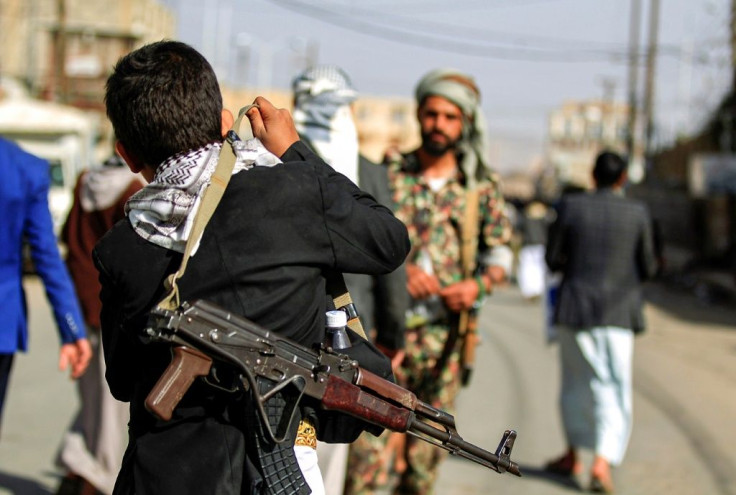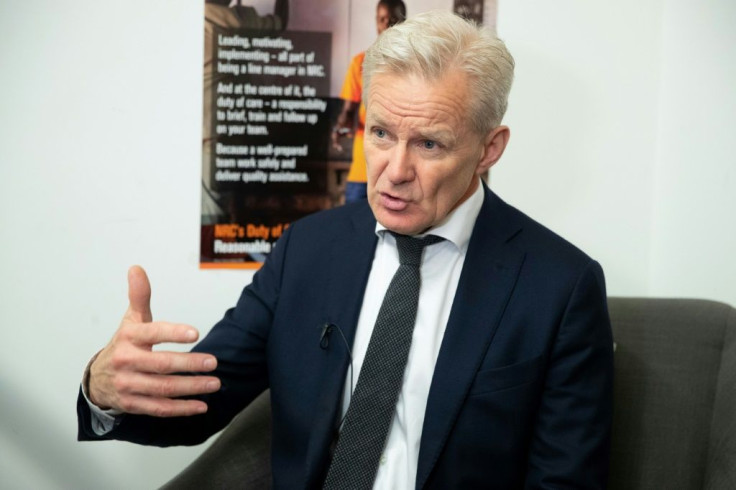Huthi Bid To Tax Aid Threatens Millions In Yemen

Obstruction by the rebel Huthi authorities in northern Yemen has put the world's biggest humanitarian lifeline at risk, threatening millions with starvation.
Senior officials, UN leaders and humanitarian groups met on Thursday at the European Commission in Brussels, and heard that vital aid supplies could be cut off.
"It can not continue, the biggest lifeline on earth is at stake. There are 20 million people in need in Yemen," Jan Egeland, head of the Norwegian Refugee Council, told AFP.
Earlier, Egeland had addressed the meeting, called by the European Commission and the government of Sweden, to address the latest crisis in the five-year-old civil war.
Before the talks, The European commissioner for crisis management Janez Lenarcic, declared: "Yemen is the world's biggest humanitarian crisis.
"The parties to the conflict must uphold international humanitarian law and guarantee safe and unimpeded access to humanitarian organisations."
Yemen has been driven to the brink of famine during fighting between the Iran-backed Huthi group based in Sanaa, and the Saudi-backed government of President Abedrabbo Mansour Hadi.
The Brussels meeting heard that, while both sides have made trouble for humanitarian and UN agencies, the Huthi attempts to tax shipments triggered the latest crisis.
"It's always been very difficult to work in Yemen," Egeland, a former senior Norwegian diplomat and UN undersecretary general, told AFP in an interview.
For a long time, he said, the Saudi-led blockade of the port of Hodeida and bombing campaign had been the problem.
"But today it is the authorities in the north who are sitting in Sanaa, Ansar Allah, that have the majority of the restrictions," he said, using the Huthi movement's official name
"It's also difficult to work in the south with the Hadi government, but the main interference, the main problems we have are in the north," he said.
Egeland said -- in addition to various other forms of harassment and interference -- the northern authorities had threatened to impose a two percent levy on NGOs.

"We cannot pay donated aid money to one of the parties to the conflict. So that is one of the many red lines that we are fearful of having to cross. We cannot do it," he said.
Only a negotiated settlement between the two sides can end the conflict, he said, but in the meantime donor groups and UN members must pressure them to allow aid through.
Of the 20 million people civilians under threat in Yemen, aid reaches 14 million, in what Egeland describes as a "major achievement" for the UN and aid groups.
But the World Food Program and some other international donors may be forced to halt supplies if local officials insist on taking a cut.
"The UN agencies, including the WFP have already on several points frozen assistance, had a pause in the assistance, which is of course devastating," Egeland said.
"That led to some improvements in the situation. We're now back to as bad as it has been, really.
"The aid may come to a halt, and it shouldn't be like that, we should be allowed to help the innocent, to cite the Koran," he said.
"We should be able to keep people alive until the politicians, the people with guns and with power, make it up on the negotiating table."
The Huthi authorities have previously dismissed criticism, including allegations of systematic interference and layers of bureaucracy imposed by SCMCHA, the rebel's aid body.
"Some UN agencies play a political role and use aid as a card with which to threaten the Yemenis," said the head of SCMCHA, Abdul Mohsen al-Tawoos.
"This blackmail of reducing aid doesn't work on Yemenis, and if they continue with this threat, then things will turn against them," he said, according to Huthi media.
But Egeland insisted that the humanitarian operation was strictly neutral, and the only thing standing between millions of innocents and starvation.
"Of the 20 million people in need there's various degrees of severity. All are in great need, it's bigger need than anything you see here in Europe," he said.
"But there are millions one step away from starvation, which means that if that lifeline to 14 million people is partly or wholly cut it will have devastating consequences."
© Copyright AFP {{Year}}. All rights reserved.





















